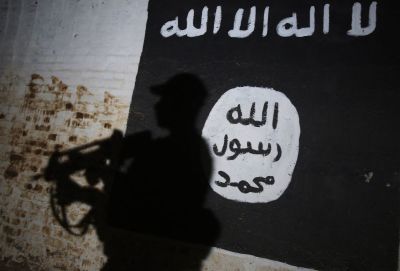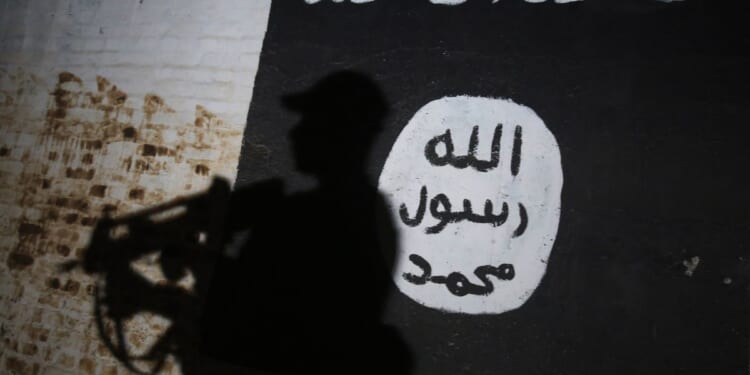Islam’s version of ‘sola fide.’ Call it sola jihad

In the history of religion, no question is more fundamental than this: how can man be saved? Christianity and Islam, both claiming universal truth, offer radically different answers.
In the 16th century, Martin Luther and the Protestant reformers shook the Western world by recovering a biblical truth: sola fide, faith alone. Against the Catholic Church’s sacramental system, with its treasury of merits, indulgences, and penances, Luther declared that justification comes not through human works but through faith in Jesus Christ. A sinner is justified by trusting in Christ’s finished work on the cross. Assurance of salvation comes not from tallying good deeds but from clinging to God’s promise.
Islam answers the same question in the opposite way. It offers no “faith alone.” It offers no assurance through God’s grace. Instead, it drowns its followers in an ocean of commandments, prohibitions, and rituals that regulate every aspect of life, from how you eat and dress to how you use the bathroom. And yet, even with complete obedience, the Qur’an insists that Allah guides and forgives whom he wills, and damns whom he wills. The Muslim is left in despair, never knowing if his prayer or fasting is accepted. The balance of deeds on Judgment Day is always uncertain.
Except in one case.
There is one act that guarantees salvation. One act that cancels sins, wipes the slate clean, and assures immediate entry into paradise: jihad in the path of Allah.
This is Islam’s version of “sola fide.” Call it sola jihad — salvation by jihad alone.
Sola Fide and the assurance of salvation in Christianity
To grasp how radical Islam’s teaching is, we must first understand what Christianity offered to the world in contrast. In Catholic theology of the Middle Ages, salvation was mediated through the Church: baptism, confirmation, confession, the Eucharist, penance, indulgences, and the intercession of saints. Grace was distributed in fragments, and a Christian could never be sure whether he had done enough. The fear of purgatory haunted consciences.
Luther, Calvin, and other reformers returned to Scripture, especially Paul’s letters, and declared that salvation is by grace alone (sola gratia), through faith alone (sola fide), in Christ alone (solus Christus). Romans 3:28 became a banner: “For we hold that one is justified by faith apart from works of the law.”
This was liberating. The Christian did not need to gamble on human effort. He could rest in the finished work of Christ, the perfect sacrifice. Faith was not a vague optimism but a trust in God’s promise that the believer is accepted because of Christ, not because of human merit.
The dispute between Protestant reformers and the Catholic Church reshaped Europe. But for both sides, salvation still rested on Christ and God’s grace. Even Catholic sacramentalism assumed the mercy of God mediated through the Church.
Islam’s system of endless commands
Islam does not distinguish between faith and law. It has no doctrine of original sin, no concept of atonement, no Savior. Instead, it presents humanity with a legal system — sharia, covering every detail of life:
- Ritual prayers five times a day.
- Fasting the entire month of Ramadan.
- Almsgiving of a fixed percentage.
- Pilgrimage to Mecca.
- Laws governing inheritance, contracts, and punishments.
- Dietary codes down to which hand you use when eating.
- Rules for dress, marriage, divorce, and even bathroom etiquette.
The Qur’an and Hadith describe Allah as a strict judge who weighs every deed. Surah 99:6-8 declares: “Whoever does an atom’s weight of good will see it, and whoever does an atom’s weight of evil will see it.”
The average Muslim, faced with this overwhelming system, knows he will fall short. And the hadith reinforces the despair:
“No one’s deeds will ever admit him to Paradise.”
The companions asked, “Not even you, O Messenger of Allah?”
He said, “Not even me, unless Allah covers me with His mercy”
(Sahih al-Bukhari, Sahih Muslim).
So even Muhammad, the so-called prophet, admitted uncertainty.
Here, Islam provides a loophole, a divine shortcut. While prayer, fasting, almsgiving, and pilgrimage may or may not be accepted, jihad comes with a promise.
The Qur’an states:
- Surah 9:111: “Indeed, Allah has purchased from the believers their lives and their properties [in exchange] for Paradise. They fight in the cause of Allah, so they kill and are killed.”
- Surah 3:169: “Do not think of those who are killed in the path of Allah as dead. Rather, they are alive with their Lord, receiving provision.”
Hadith make it even clearer:
- “The martyr is forgiven at the first drop of his blood” (Sunan al-Tirmidhi).
- “The martyr is guaranteed entry into Paradise” (Sahih Muslim).
Here lies the heart of Islam’s doctrine of salvation: jihad is the only act with guaranteed results. While all else is weighed, jihad tips the scale completely.
This explains why young men, and sometimes women, facing despair, failure, or guilt, suddenly find clarity in jihad. It is not only political or social; it is soteriological. It is about salvation.
The psychology of Jihad
Consider the attacker in Manchester recently. Let’s call him by the name he carried proudly: Jihad.
He woke at dawn, prayed the Fajr prayer, and perhaps wept out of fear that he was failing Allah. Like many devout Muslims, he probably felt the crushing weight of sin. Perhaps he struggled with lust, or failed to keep his prayer perfectly, or doubted his devotion. Islam offered him no assurance.
Except one.
He knew that jihad cancels everything. That if he stabs Jews, the enemies of Allah according to Surah 5:82 (“You will find the most intense in animosity toward the believers [to be] the Jews…”), then he secures Paradise instantly. No questions asked.
This is not extremism; it is orthodoxy. It is Islam’s built-in exit plan.
Muslims often speak of five pillars: shahada (confession), salah (prayer), zakat (alms), sawm (fasting), and hajj (pilgrimage). But in practice, the true pillar that guarantees salvation is jihad. Jihad erases sins and secures Paradise. It is the sola fide of Islam, except it is not faith but violence.
This explains why jihad is glorified in Islamic literature. Muhammad’s companions are praised not primarily for piety but for fighting. Abu Ubaidah beheaded his own father in battle, and the Qur’an commends such loyalty (Surah 58:22).
The hadith collections abound with statements elevating jihad above all other deeds: “Standing in the ranks in the path of Allah is better than 60 years of prayer” (Sunan Ibn Majah)
History confirms this theological logic.
- In the 7th century, Arab armies poured out of Arabia not because they were hungry merchants, but because Jihad was preached as the path to salvation. The Battle of Yarmouk (636 CE) against Byzantium, the conquest of Egypt (642 CE), and the fall of Persia (651 CE) were all driven by this theology.
- During the Crusades, Saladin’s propaganda invoked jihad not merely as defense but as assurance of salvation for fighters.
- In modern times, groups like Al-Qaeda, ISIS, and Hamas explicitly cite Qur’an 9:111 and the hadith about martyrdom. Their recruits are not deluded misinterpreters but faithful Muslims following Islam’s clearest promise.
Why the West fails to understand
The Western mind, shaped by centuries of Christian theology, struggles to understand this. In the West, cruelty and mass killing are assumed to stem from tangible causes: mental illness, oppression, or colonization. Western liberals cannot grasp that someone might kill for a spiritual reason.
But jihad is not rooted in oppression or politics. It is rooted in theology. It is Islam’s doctrine of salvation. That is why Western policies fail. They think jobs or education will stop jihad. But when jihad is the only guarantee of eternal life, no social program can compete.
The doctrine of sola jihad explains Manchester, Paris, 9/11, October 7, and every act of Islamic terror. These are not aberrations. They are not perversions. They are Islam’s most consistent application.
The West must stop deceiving itself. Islam is not a religion of peace hijacked by extremists. It is a system that makes failure inevitable and jihad the only way out. And as long as Muslims believe jihad guarantees salvation, the attacks will not stop.
Danny Burmawi is an author, political commentator, and founder of the Ideological Defense Institute. Born in Jordan in 1988, he converted from Islam to Christianity as a young man-a decision that forced him to leave his homeland and shaped the course of his life’s work. At nineteen, he moved to Lebanon, where he spent fourteen years immersed in the region’s political and religious complexities. During that time, he founded and led multiple nonprofit organizations.

















